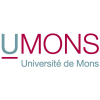
Un assistant sous mandat (f / h / x) à temps plein au sein du Service de Fluides-Machines / A full-time mandate assistant (f / m / x) in the Fluids-Machines Unit
UMONSMons, BEVotre mission
- Encadrement pédagogique des séances de travaux pratiques et d’exercices dispensées dans le service, encadrement des travaux et mémoires des étudiants, participation aux tâches liées à la gestion journalière du service (support administratif dans le cadre du suivi pédagogique, relais avec les étudiants, soutien à la planification des cours…).
- Réalisation de travaux de recherche en vue de l’obtention d’une thèse de doctorat en Sciences de l’Ingénieur, participation aux recherches du service. L’assistant sera amené à collaborer avec les partenaires académiques et industriels du service. Il sera encouragé à publier ses résultats dans des revues scientifiques et à participer à des congrès internationaux.
Présentation du service qui recrute
Le Service de Fluides-Machines regroupe l’ensemble des activités de recherche et d’enseignement de l’UMONS dans les domaines fondamentaux de la mécanique des fluides, ainsi que dans les domaines appliqués liés aux transferts d’énergie, à la simulation et aux interactions entre un fluide et une structure, une machine, l’humain ou son environnement. En spécialisant nos recherches dans la simulation numérique haute performance des écoulements complexes et dans l’optimisation intelligente multiphysique appliquée aux domaines de l’énergie et de l’environnement, nous répondons aux besoins industriels et sociétaux.
Poursuivre la lecture :
Sujet de thèse doctorat
Les simulations haute-fidélités combinées à l’optimisation de forme représentent aujourd’hui un levier essentiel pour améliorer les performances des turbomachines. L’intégration de techniques numériques avancées (modélisation fine de la turbulence, méthodes adjointes, intelligence artificielle, quantification d’incertitudes) ouvre la voie à des conceptions plus efficaces, robustes et adaptées aux contraintes industrielles.
Dans ce cadre, la thèse vise à contribuer aux recherches et développements de simulations précises, potentiellement couplées à des techniques d’optimisation de forme, appliquées aux écoulements internes complexes des turbomachines. L’objectif est de réduire les coûts de calcul, tout en renforçant la fidélité et la robustesse des modélisations. Le couplage avec l’optimisation permet d’identifier des configurations performantes, prenant en compte les pertes énergétiques, les effets de turbulence, ainsi que les contraintes technologiques spécifiques aux turbomachines.
L’orientation précise du sujet sera affinée en concertation avec le candidat et le promoteur.
Presentation of the recruiting unit
The Fluid-Machinery Department brings together all research and teaching activities at UMONS in both the fundamental fields of fluid mechanics and the applied areas related to energy transfer, simulation, and interactions between a fluid and a structure, a machine, a human, or the environment. By specializing our research in high-performance numerical simulation of complex flows and intelligent multiphysics optimization applied to the fields of energy and the environment, we address both industrial and societal needs.
Read more : PhD research Topic :
High-fidelity simulations combined with shape optimization are now a key lever for improving performance of turbomachinery. The integration of advanced numerical techniques — such as detailed turbulence modeling, adjoint methods, artificial intelligence, and uncertainty quantification — paves the way for more efficient, robust designs tailored to industrial constraints.
In this context, the PhD aims to contribute to the research and development of accurate simulations, potentially coupled with shape optimization techniques, applied to the complex internal flows of turbomachines. The objective is to reduce computational costs while enhancing the fidelity and robustness of the models. Coupling with optimization helps to identify high-performance configurations that take into account energy losses, turbulence effects, and the technological constraints specific to turbomachinery.
The precise focus of the research will be defined in consultation with the candidate and the supervisor.
Votre profil
Qualités scientifiques et pédagogiques, capacités de communication orale et écrite en français et en anglais, disponibilité, curiosité intellectuelle et proactivité, esprit critique, autonomie, rigueur, esprit d’équipe, flexibilité.
Les candidats devront être en possession d’un diplôme de Master Ingénieur civil énergéticien, mécanicien ou électromécanicien. Une formation ou une expérience en simulation numérique d’écoulement constitue un atout.
Scientific and pedagogical qualities, oral and written communication skills in French and English, availability, intellectual curiosity and proactivity, critical thinking, autonomy, rigour, team spirit, flexibility.
Candidates should have a Master’s degree in civil engineering in energy engineering, mechanical engineering or electromechanical engineering. Training or experience in numerical flow simulation is an asset.
Notre offre
Contrat à durée déterminée, renouvelable
Un mandat de deux ans débutant au plus tôt le 15 septembre 2025, renouvelable à deux reprises.
Fixed-term contract, renewable
A two-year term starting no earlier than 15 September 2025, renewable twice.
Créer une alerte emploi pour cette recherche
Un Sous Mandat Plein • Mons, BE